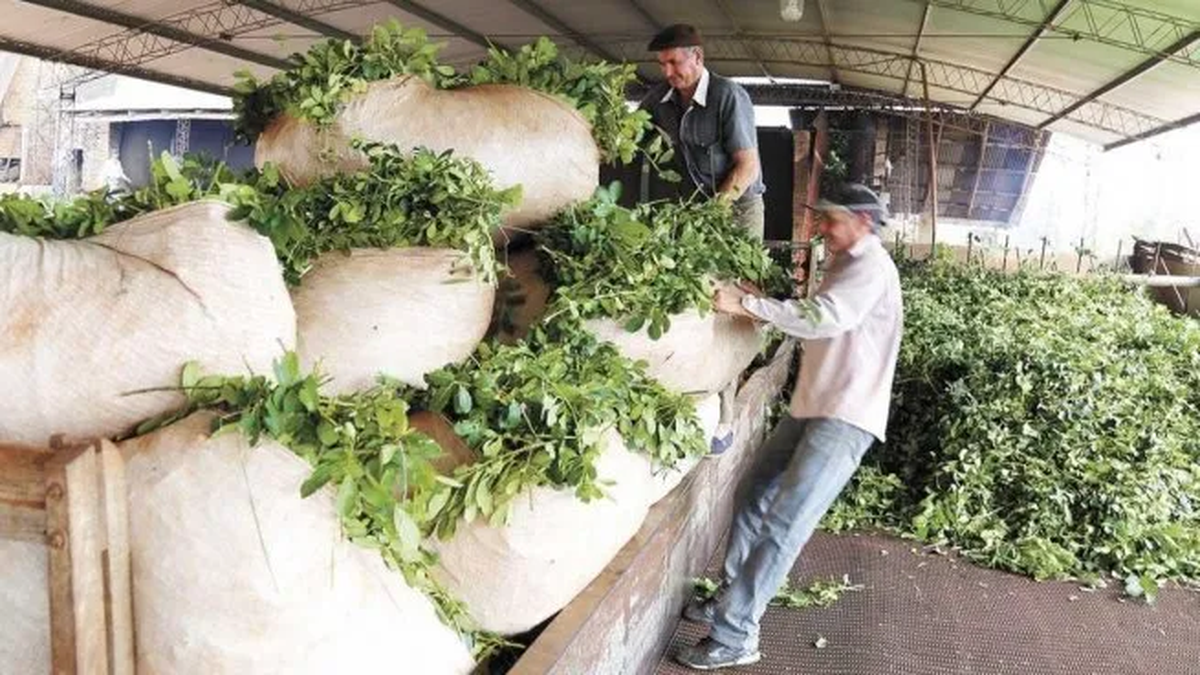A few days before the end of the winter harvest of yerba mate Yerba mate producers continue to demand a better price for green and dried leaves. “We are experiencing the negative consequences of the deregulation of the price of yerba mate and the opening of imports,” said the yerba mate producer from the town of Andresito and former president of the National Yerba Mate Institute (INYM), Jonas Petterson.
Petterson and the producer from the central area Hugo Sand spent weeks with their tractors in Plaza de Mayo demanding a better price for green leaves and against the deregulation of yerba mate. “We came from CABA empty-handed, we were not able to get any official to help us, we could only leave our complaints at Casa Rosada,” said Petterson.
Sand said: “We want to call on all regional economies to protest in Plaza de Mayo, because not only is the yerba mate industry in bad shape, but so are the others. We are back in the 90s when green leaves were worthless.”
Petterson and Sand argued that the current economic measures are destroying regional economies. “They have led to a sharp fall in prices and unfair competition with foreign producers.
The worst harvest
On December 20, 2023, DNU 70/2023 of the Javier Milei’s government deregulated the INYM, removing its powers to set prices, regulate the market and seize unstamped yerba. For producers, prices for green leaves have plummeted since then.
Jonas Peterson said that “one could say that this is the worst harvest in the last 22 years in terms of prices.” Cristian Klingbeil, a producer from the central area of Misiones, stressed the importance of the INYM: “We continue to fight and we will try to find methods to recover the INYM with all its functions, a tool that is fundamental for the sector.”
Less than 50%
Yerba mate producers said that by mid-year, the price of green leaves had lost 50% of their value.
Payment methods vary between 60 and 80 pesos per kilo at the plant, 100 pesos in advance and an indefinite deposit, or checks with terms of up to 120 days. “Lately, 60, 80 pesos per kilo of yerba mate at the plant are being offered,” explained Klingbeil. Peterson added: “In some cases, they are paying the harvesting and freight service to the producers, and the rest still do not know when or how much they will be paid.”
Cooperatives also face difficulties. José Luis Semienchuk, from the Las Tunas cooperative In the southern area of Misiones, he said: “There are many people who are asking to come to the cooperative because of the price that is being paid and we do not have the capacity, we do not have space, we do not have money.” According to Semienchuk, production has exceeded the cooperative’s storage capacity, which could lead to bankruptcy.
Klingbeil said the year was favourable in terms of production, but there is talk of overproduction. “The harvest was much higher than consumption,” he said in statements to the Misiones on Line website.
The producer from the central region said that the authorization of imports with tax and financial benefits by the national government marked a break in the price of yerba mate.
These producers say that this situation is aggravated by the increase in the price of fuel, which went from 400 to more than 1,000 pesos this year. The hope of the producers for the next harvest is minimal. “We have very little hope and we see that the struggle is going to be very great to recover everything that was lost and all the damage that the free market and the DNU are causing us today,” said Peterson.
Source: Ambito




